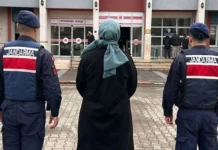Turkish prosecutors have filed an indictment seeking prison sentences of up to 25 years for nine people linked to Maydonoz Döner, a fast-food chain that was seized by the government this year over alleged ties to the faith-based Gülen movement, Turkish Minute reported.
President Recep Tayyip Erdoğan has been targeting followers of the Gülen movement, inspired by the late Muslim cleric Fethullah Gülen, since corruption investigations in December 2013 implicated him as well as some members of his family and inner circle.
Dismissing the investigations as a Gülenist coup and a conspiracy against his government, Erdoğan began to target the movement’s members. He designated the movement as a terrorist organization in May 2016 and intensified the crackdown on it following an abortive putsch in July of the same year that he accused Gülen of masterminding.The movement strongly denies involvement in the coup attempt or any terrorist activity.
The chain’s parent company, Somca Gıda, had previously been placed under the control of the state-run Savings Deposit Insurance Fund (TMSF), which has seized and sold hundreds of businesses since 2016 as part of a sweeping crackdown on alleged Gülen links.
The indictment, accepted by Ankara’s 2nd High Criminal Court, claims the nine defendants managed or held shares in various Maydonoz Döner branches in Turkey and abroad. Prosecutors allege the chain’s branches were used to move money to people connected to the Gülen movement inside and outside Turkey, including through informal profit-sharing arrangements and disputed commercial invoices.
The filing also asserts that some former employees or partners who left Turkey in recent years remained financially involved in several outlets through informal channels. Financial reports cited in the indictment claim that funds transfers to the company from individuals previously investigated for alleged Gülen links suggested “irregular” account activity.
Officials say the defendants communicated through an encrypted messaging application and coordinated financial transfers to people accused of membership in the movement. All nine are charged with “membership in an armed organization” and violating Turkey’s anti-terrorism financing law.
The court has scheduled the first hearing for November 21.
Rights advocates say the case fits a years-long pattern in which routine business activity, personal contacts or private financial transfers are treated as evidence of terrorism. Tens of thousands of people have been prosecuted on similar charges since 2016, often relying on digital communication records, bank transfers or employment history.















